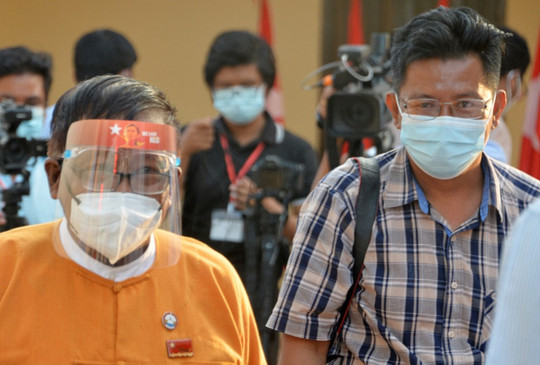UPDATE MARCH 23: Detained BBC journalist Aung Thura was released in Myanmar, days after he was detained, the BBC World News reported.
BBC reporter Aung Thura and Mizzima News reporter Than Htike Aung were reportedly taken away by plainclothes security agents while reporting outside a court in the capital, Nay Pyi Taw. Both journalists were covering legal proceeding against detained National League for Democracy (NLD) senior official Win Htein.
A journalist told IFJ two plainclothes military intelligence agents took the two journalists to an undisclosed location in an unmarked car. The BBC raised concern over the whereabouts of their colleague, asking Myanmar authorities to “confirm that he is safe” in a statement. The BBC has been unable to contact Thura since his arrest. On March 19, a further eight people were killed, bringing the total number of civilians killed to 234 as protests against the military junta continue in the country.
Journalist detainments are part of a slate of the continued attacks by the military on the country’s media and also includes threats, power and internet cuts, intimidation via published lists of targets and the forced closures of all of the country’s independent media outlets. BBC News reports that at least 40 journalists have been arrested since the military coup began on February 1, with 16 still in custody. On March 8, five major media companies had their licenses cancelled, including Mizzima News, with orders that they are no longer allowed “to write or give information by using any kind of media platform”.
With independent media officially shuttered, social media platforms have become more essential in the distribution of news. The military’s use of social media platform to churn out its own narrative during the crisis has been blocked on Facebook after the company banned it from its platforms in late February. It came after continued criticism of Facebook, particularly after the military infamously used it to spread hate speech and disinformation about the country’s Rohingya Muslim minority in the years leading up to its 2017 campaign of murder, rape and arson, which according to the UN was carried out with “genocidal intent.”
The IFJ said: “Attacks, threats and arrests of journalists across Myanmar is a major human rights violation that needs the world’s attention. The IFJ is now getting daily reports of journalists forced into hiding and fleeing in fear after the military junta’s pursuit of them for allegedly reporting “fake news”. The IFJ condemns the arresting of all journalists and calls for their immediate release in respecting free media.”

